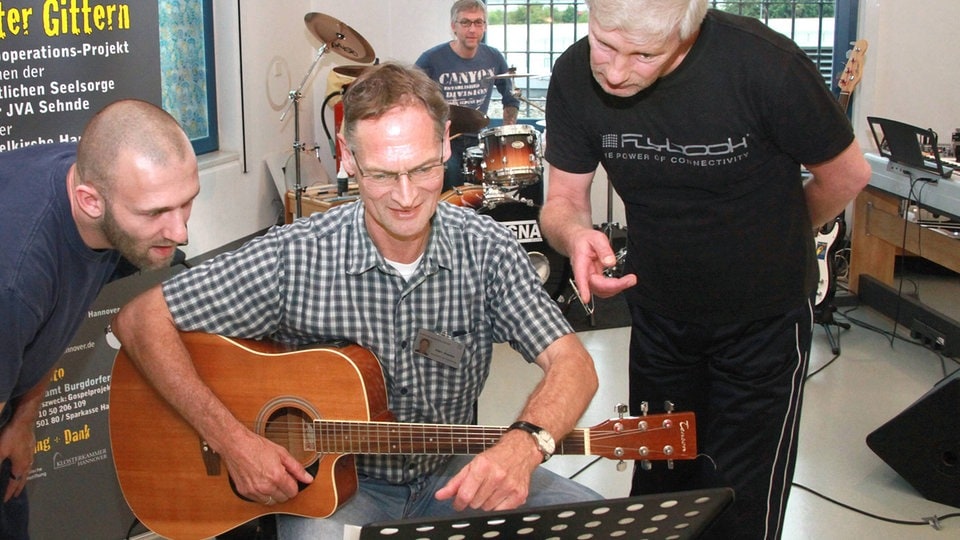The book “Music in Prison” is an extensive collection of academic articles. It is aimed primarily at music educators who are considering working in the penal system.
–
There are also authors who ask the question whether music educational offers in a prison make sense at all in view of the symbols of power and control that are omnipresent there, let alone contribute to the rehabilitation of prisoners. Others are of the opinion that various music educational formats certainly support the rehabilitation of prison inmates. This has been particularly noticeable in the last few years, for example Education projects of the Berlin Philharmonic in the prison in Berlin-Tegel.
–
Together with the prison theater “Aufbruch”, a version of Beethoven’s prison opera “Fidelio” was developed here – with contributions from the prisoners from their musical experiences. With projects like this one can feel that the prisoners experience their identity in a new way and also think beyond their existence in prison. Daniel Mark Eberhard is also convinced that music can contribute to rehabilitation. He is one of the editors of the book “Music in Prison”. One must first get rid of the idea that music is a social panacea.
–
People should experience themselves differently
Now in prison they make music, and then everyone is better people. It’s not like that, of course. No, but we expect the mode in which one enters when dealing with music to have positive effects in many ways. Above all on an emotional level and – if this is appropriately guided – also on a social level.
–
–
The point, Eberhard explains, is that people experience themselves differently: no more than violent, as deficient and incompatible with law and order. Music conveys a feeling of self-efficacy, pride and a new experience of oneself – an experience that is unique and in no way comparable to others, for example when boxing, playing football or looking at a picture. Daniel Mark Eberhard and his colleagues also repeatedly point out that music education in prisons is only weakly anchored in institutional terms – and not very professionalized.
–
We have too few music teachers who can combine musical and social work. We need “community musicians”, people who have an eye for the respective target group and the opportunities that arise from it. We need people in these institutions who openly approach prisoners or detainees.
–
–
There are. But so far they have been lone fighters who have gained their own experience. Like Klaus Volland, who has been giving guitar lessons in the JVA Hamburg-Fuhlsbüttel since 1989.
–
Rhythm games are particularly suitable. Unusual questions can also attract a lot of attention, for example: What does playing guitar have to do with gravity? Both activities are about the ability to let go. Many participants have difficulties here.
–
–
But the book “Music in Prison” is not only suitable for music educators. It also encourages people to think fundamentally about the possibilities of a modern penal system.
–
Music in Prison – Perspectives from Research and Practice, Alicia de Bánffy-Hall, Daniel Mark Eberhard, Annette Ziegenmeyer (Eds.)
Waxmann 2021, 322 pages, paperback, 34.90 €, ISBN 978-3-8309-4407-2
–
–
– .


